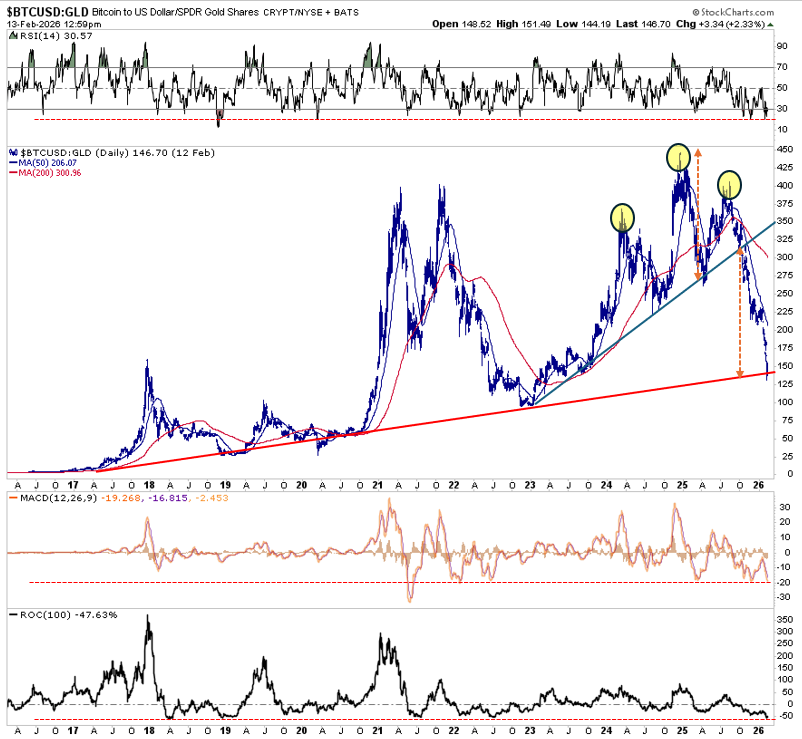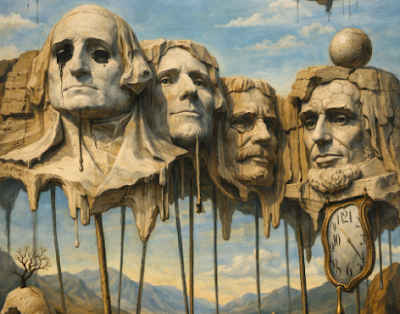The New Leviathans: Thoughts after Liberalism
by John Gray
Farrar, Straus and Giroux, 2023; 192 pp.
John Gray is a strange case. He is a political philosopher who taught for many decades at Oxford and the London School of Economics, and he has become one of the leading British “public intellectuals.” A friend of the rich and famous, including George Soros, he abandoned long ago the classical liberal beliefs he held in the late 1970s and early 1980s. By no means, though, has he turned into a conventional leftist. He realizes that a powerful state is dangerous and warns against utopian projects that purport to make the world a better place by bringing people under control. This realization has not led him to embrace the free market, as he did in his youth. Why not? This is the topic I’d like to address in this week’s column, and I’ll suggest the answer lies in some very bad arguments he offers.
First, though, is the insightful realization. He compares the states of the contemporary world powers to Thomas Hobbes’s Leviathan. Hobbes argued that a strong state was needed to prevent people enflamed by religious passions from igniting civil war, as he believed had occurred in Britain in the 1640s, but the “goals of Hobbes’s Leviathan were strictly limited. Beyond securing its subjects against one another and external enemies, it had no remit.”
The contemporary state, though often less absolute in its powers than in Leviathan, attempts to do more than secure its subjects, and this has often led to disaster:
The purposes of the new Leviathans are more far-reaching. In a time when the future seems profoundly uncertain, they aim to secure meaning in life for their subjects. Like the totalitarian regimes of the twentieth century, the new Leviathans are engineers of souls.
The upshot has been the return of the state of nature in artificial forms. Even as they promise safety, the new regimes foster insecurity. . . . Within Western society, rival groups seek to capture the power of the state in a new war of all against all between self-defined collective entities. There is an unrelenting struggle for the control of thought and language. Enclaves of freedom persist, but a liberal situation based on the practice of tolerance has passed into history.
In schools and universities, education inculcates conformity with the ruling progressive ideology. The arts are judged by whether they serve approved political goals. Dissidents from orthodoxy on race, gender and empire find their careers terminated and their public lives erased.
You might imagine that the solution to these problems is in essence simple. If the contemporary state is dangerous, why not radically reduce its power or, better yet, do away with it altogether? Can’t people attain a peaceful and prosperous society through social cooperation in the free market? So Ludwig von Mises and Murray Rothbard have taught us, but Gray does not agree with them.
He deploys two main arguments against the free market. The first of these arguments is that support for the free market stems from individualist premises that he thinks are mistaken. These assumptions come from Hobbes, whom Gray considers the first liberal despite his support for a state with absolute power. Hobbes, Gray says, thought that “human nature is universal in its needs; divergent cultural identities are superficial and insignificant. With the application of reason, government can be improved. Human beings can overcome their conflicts, and learn to live in peace.”
Gray counters that these assumptions are half-truths:
People regularly give up peace and security in order to defend a form of life they believe to be superior to others. The most basic human goods may be universal, but they are often sacrificed in order to fight for values that are specific to particular ways of living. Society and government can be improved, but what is gained can always be lost.
The basic mistake in Gray’s line of thought is that he views the case for the free market as a historical prophecy. Classical liberals are supposed to hold that people will overcome their irrational passions and recognize that reason requires the free market. This is a belief he takes to be part of the “Enlightenment project,” a phrase from Alasdair MacIntyre that Gray often uses in his books, though not in this one. (The words used to drive my late friend Ralph Raico to distraction. Raico once cornered Gray at a Liberty Fund conference and demanded that Gray reveal the location of the “project.”)
What Gray fails to see is that although some classical liberals were optimistic about the success of their ideas, the argument for the free market is prudential and ethical, not historical. The argument has two steps: if you want peace and prosperity, you should establish and maintain a free market, and you should want peace and prosperity. The claim that people will see the force of these considerations and act as they mandate is by comparison of secondary significance. It is quite possible to be a classical liberal and also to think that people are too evil and stupid to realize that the free market is desirable. H. L. Mencken and Albert Jay Nock come to mind as examples of such classical liberals.
I’m afraid it gets worse when we get to Gray’s second main argument against the free market. He focuses on Friedrich Hayek, whom he takes to be offering a Darwinian argument: Hayek, “one of the most influential late twentieth-century ideologues, believed that market capitalism spread through an evolutionary process. The most productive system was the free market, which would win out in Darwinian fashion over all others.” In arguing in this way, Hayek “departs from the most important discovery in modern science. As understood by Charles Darwin, evolution has no destination. Humankind is not the endpoint of natural selection, which may well result in its extinction.”
Gray has made a silly mistake. The claim that an economic system will supplant others in competition does not imply that biological evolution has a goal or that human beings will never die out. If someone argues that very fast baseball players have a competitive advantage over slow players, he is not refuted by the likelihood that at some future time, baseball won’t be played anymore.
Full story here Are you the author? Previous post See more for Next postTags: Featured,newsletter





































